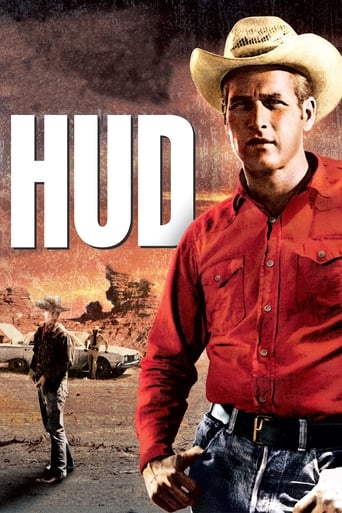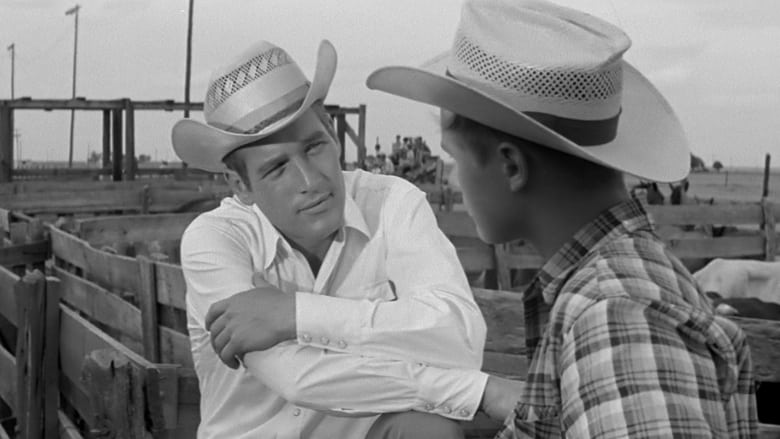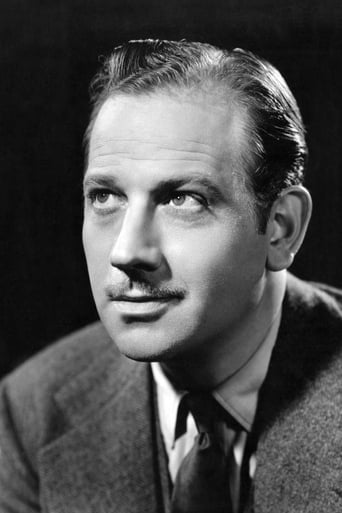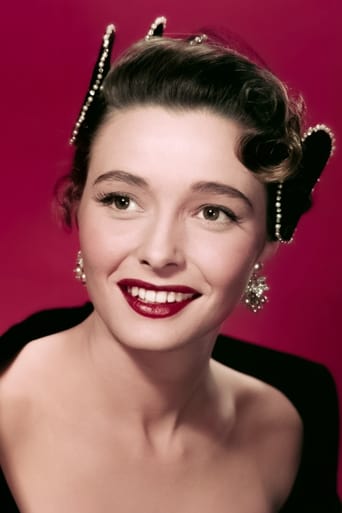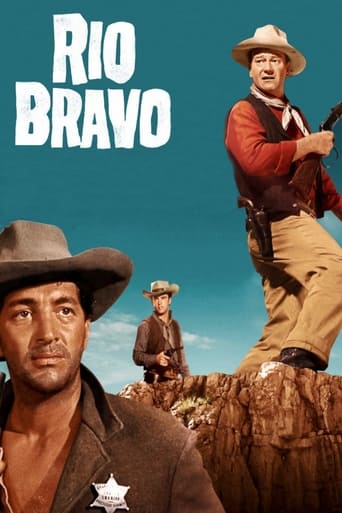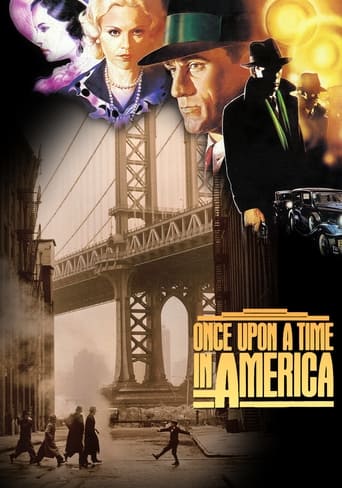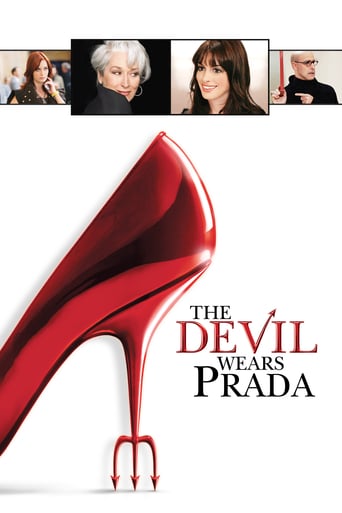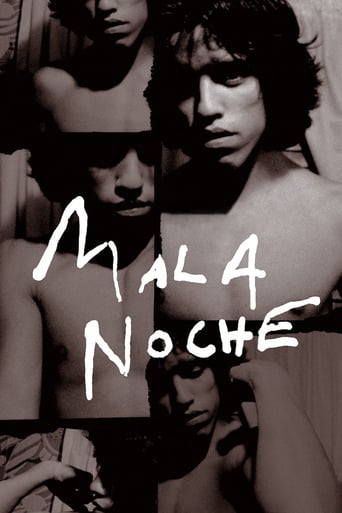Hud (1963)
Hud Bannon is a ruthless young man who tarnishes everything and everyone he touches. Hud represents the perfect embodiment of alienated youth, out for kicks with no regard for the consequences. There is bitter conflict between the callous Hud and his stern and highly principled father, Homer. Hud's nephew Lon admires Hud's cheating ways, though he soon becomes too aware of Hud's reckless amorality to bear him anymore. In the world of the takers and the taken, Hud is a winner. He's a cheat, but, he explains, "I always say the law was meant to be interpreted in a lenient manner."
Watch Trailer
Cast
Similar titles


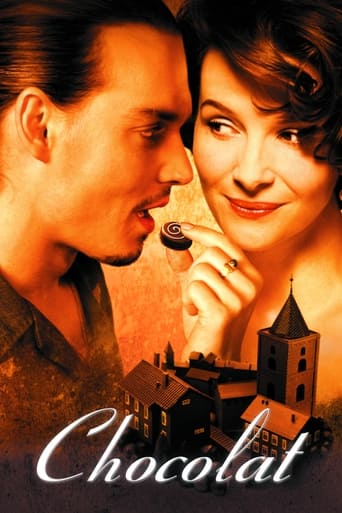
Reviews
Save your money for something good and enjoyable
This is one of the few movies I've ever seen where the whole audience broke into spontaneous, loud applause a third of the way in.
Blistering performances.
The film may be flawed, but its message is not.
If you only watch one Paul Newman movie in your life, watch Hud.A bad boy with sex appeal oozing off the screen, Hud is hard to resist. He's quick with a fight, a one-liner, and a love-and-run romance. He's bad news, but the audience can't help but like and root for him. He's positively magnetic, but two characters in the film resist him. His father, Melvyn Douglas, clashes with him at every turn, and their fights are devastating to watch. And Patricia Neal, the woman with more willpower than any woman alive.Newman and Neal spark, sizzle, and scorch. It's worth watching the film just to feel their chemistry. Neal won the Best Actress Oscar, and Melvyn Douglas won Best Supporting Actor, but unfortunately Paul Newman lost his contest. Sidney Poitier won his make-up Oscar that year (Lilies of the Field, as an apology for losing the Oscar for The Defiant Ones in 1959 and not being nominated for A Raisin in the Sun in 1962), but Paul Newman would have to wait 25 years to receive his make-up Oscar.Hud is a classic, but it's a heavy drama, so make sure you're in the right mood when you rent it. It's really fantastic, and the script is smart, sexy, and sorrowful. It's too bad the Academy was so taken with Tom Jones that year; Hud lost the adapted screenplay award and wasn't even nominated for Best Picture. At least director Martin Ritt was nominated. He directed five Paul Newman movies, and this one really shows off his talents.
Two classic films based on the writing of Larry McMurtry have immortalized a certain Texas small town state-of-mind, "Hud" and "The Last Picture Show." McMurtry has been fantastically lucky with Hollywood, artistically and financially, as lucky as any American writer ever - see also the wonderful "Lonesome Dove" and his beautiful co-scripting of "Brokeback Mountain." "Hud" is superb. The acting, the photography, the epic three-generational family conflict - all excellent. (I can't think off-hand of many pictures that delve into the complexities of three generations of a family; "The Godfather" trilogy kind of explores that territory, although the third generation has no actual contact with the first.)This film caps off the first great phase of Paul Newman's career. He did some of his best work from 1956 to '63 including "Somebody Up There Likes Me," "Sweet Bird of Youth," "The Long, Hot Summer," "The Left-Handed Gun" (a really interesting portrayal of Billy the Kid), and "The Hustler." After "Hud" he had a three-year rough patch that included "The Outrage," "Lady L." and "Torn Curtain" before storming back into superstardom with "Harper" and "Cool Hand Luke" in 1966 and '67 and "Butch Cassidy" in '69. Patricia Neal is perfect here: tough, sweet, and funny, a poker-playing mama with a lot of passion bubbling under the surface. Her role in "Hud" is quite small really (most of her screen time is in the first hour) but we feel her presence, and are thinking about her, from her first appearance. (Neal had difficult and tragic first half of the '60s - one of her children died of measles (1962), another was seriously injured by a New York taxicab (1960), and, in 1965, post-"Hud," she herself suffered a serious stroke. Neal apparently told Newman about the measles death early in the filming of "Hud"; he was so deep into his character he just said "Tough" and ambled away.) The director and screenwriters of "Hud" deserve a shout-out and I am happy to supply it here: Martin Ritt (director) and the writing team of Irving Ravetch and Harriet Frank, husband-and-wife. Those three folks had previously worked with Newman on "The Long, Hot Summer" (based on William Faulkner's "The Hamlet"). Some of my favorite lines and images: "Far as I can get on a bus ticket" delivered with a cool go-to-hell glance. The beautiful moment when Homer belts out "My Darling Clementine" in the movie theater (by the way, that's basically the same theater as in "The Last Picture Show"). The endless skies. The sound of the wind. "We dosey-doed and chased a lot of girlish butt around that summer." "I was sitting way on the other side of the room and I got a little encouraged." The Cadillac bouncing on those country roads and railroad tracks - suspensions were none too robust in those days. The way Alma says "Somebody in this car has been wearing Chanel Number Fiiiiiive...." Her zapping with a towel of a horsefly (the moment was unscripted). The use of music (guitars, a jukebox, a transistor radio, a car radio - spare and totally right). The twisting contest. The lemonade scene. "I'll stay home. I don't like pigs." The depiction of the prairie and the sky as an Impressionist painting by Ritt and cinematographer James Wong Howe (Howe considered his work here the best of his long career, which dated to the silent era). The paperback book rack in the drugstore and the pointed commentary from the proprietor about a sex scene in "From Here to Eternity." (The paperback book rack in the corner drugstore was a significant part of American culture for decades, in a thousand cities and towns; it's gone now and mostly forgotten.)My favorite Melvyn Douglas moment in the film is when he's taking a last look at his longhorns. It's a small miracle of acting - the camera is a good 25 feet away but we feel every bit of Homer's grief. Speaking of James Wong Howe - there's a long audio interview with him on YouTube and there's an excellent book about him titled "James Wong Howe: The Camera Eye."One of the interesting themes of the film is its earthiness about sex. Not just Hud's supercharged/decadent sex life but Alma's casualness about Lonnie's girlie magazine, Homer's frank appraisal of the growing boy, the provocative let's-party look delivered to Lonnie in the diner, the twist contest where very young kids get on out there - totally unembarrassed - and shake their booties under the fond gaze of half the town, the "From Here to Eternity" moment in the store.I have a quibble with an aspect of the script. Homer's a good man and Hud's a bad man, quite obviously, but the fact is, Hud makes a valid and defensible point about the family's future. Those fields probably hold a lot of oil and Hud knows it and wants it. Homer's prejudice against getting rich is not adequately explained. What we need is a scene where Homer and Lonnie have an encounter with some nouveau-riche oil-crazy goofballs who are drinking and partying too gosh-darn hard (with Hud amongst them); Homer sees the corruption that wealth can bring and makes sure Lonnie sees it too.
Although Paul Newman portrayed any number of drunkards, layabouts, thieves, con men, bastards and seedy, shady, unreliable cads during the course of his justly celebrated, 50+-year career, perhaps no other character was such a complete and utter, irredeemable turd as the one he played in "Hud." As a matter of fact, in an interview done years later, the film's director, Martin Ritt, revealed that most studios passed on the project, deeming the lead character and subject matter too unpleasant, and that even Newman's manager advised the actor not to participate. Newman was at this point emerging as a genuine superstar, by dint of recent portrayals in films such as "Cat on a Hot Tin Roof," "Exodus," "The Hustler" and "Sweet Bird of Youth," but fortunately never let an unsavory character prevent him from taking on a meaty role. Based on Larry McMurtry's first novel, 1961's "Horseman, Pass By," and filmed largely in and about the tiny Texas town of Claude (in the panhandle), "Hud" was released in May 1963 to great acclaim and remains a most powerful experience, now 50 years later.In the film, the viewer makes the acquaintance of 34-year-old Hud Bannon (Newman, natch), a hard-drinking, inveterate womanizer in modern-day Texas. Hud lives on his father Homer's cattle ranch, along with his 17-year-old nephew Lon, who idolizes him, and housekeeper Alma, spending his days working on the ranch and his nights carousing in town and chasing after married women. Homer, an old-fashioned man of unfailing rectitude, detests Hud's wanton ways and basic immorality, telling him at one point "You're an unprincipled man, Hud." And the relationship between the two becomes strained even further when an outbreak of foot-and-mouth disease forces Homer to consider the terrible prospect of exterminating his entire herd, while Hud urges him to just sell the lot to an unsuspecting buyer. And before long, a family tragedy that transpired years before is revealed, while Hud makes plans to wrest his father's empire away from him...."Hud" features any number of attributes that combine to make it a powerful achievement, but foremost are the thesping jobs turned in by its four leads. Patricia Neal, as Alma, won a Best Actress Oscar for her work here, despite the fact that her role is more of a supporting one; still, she is quite excellent, earthy and sexy and memorable. Also copping an Oscar for his work here was Melvyn Douglas, who is truly astonishing as the upright Homer. Douglas was 62 here, but looked much older, and in truth, the man looks nothing like the dapper gent who featured in such '30s comedies as "Theodora Goes Wild" and "Ninotchka"; he certainly did not age as well as Paul Newman (but then again, what human male in all of history ever did?!?!). As Lon, Brandon de Wilde, all grown up here since 1953's "Shane," also gives a wonderful performance, sensitive and likable. A good-looking kid with a healthy interest in girls, Lon is understandably attracted to Hud's loose and easygoing ways, although his attitude toward his uncle gradually changes as the film proceeds. And as for Newman, need it even be mentioned how terrific he is as the dirtbag Hud? A complete louse, Hud at one point tries to blame his nephew for an affair that he, Hud, had been having with a married woman; makes repeated crude advances on Alma; attempts to rape Alma, in one shocking sequence; uses Lon's affection to help him sway the boy against his own grandfather; and, as already mentioned, urges Homer to sell diseased cattle and conspires against his own father. Newman deservedly earned an Oscar nomination here, ultimately "losing" to Sidney Poitier's work in "Lilies of the Field." Charismatic and strangely appealing, this is a character who you will hate to admire, but one that you'll surely find hard to shake."Hud," other than those four towering performances, features some nicely sensitive direction from Ritt, who had previously worked with Newman on "The Long Hot Summer" and who would go on to direct him in "The Outrage" and "Hombre." The film has been beautifully shot in B&W wide-screen Panavision by the great James Wong Howe, features a lovely theme song, by Elmer Bernstein, on acoustic guitar (how different this theme is from Bernstein's bold and brassy score for "The Man With the Golden Arm," or his classic theme for "The Magnificent Seven," or his slinky, jazzish theme for "Walk on the Wild Side"!), and uncharacteristically unglamorous costumes by the legendary Edith Head. And the picture boasts a script--written by Irving Ravetch and Harriet Frank, Jr.--containing so many wonderful lines that you'll feel compelled to write some of them down. I love it when Hud proclaims "Nobody gets out of life alive," and when he says of Homer's pooh-poohing the suggestion that they drill for oil on their land, "My Daddy thinks that oil is something you stick in your salad dressing." (And who knows more about salad dressing than Paul Newman, right?) The picture also spotlights the late cult actress Yvette Vickers in one of her later roles and flies in the face of the then-still-in-force Production Code with its use of the words "bitch" and "bastard." A literate, adult film with any number of wonderful scenes, "Hud" really is a complete triumph for all concerned. How interesting it would have been to revisit Hud Bannon in a sequel, a la hustler Eddie Felson in "The Color of Money," to see if he might have changed any; grown softer and more decent with the years. But if the film's superrealistic final moments are any indicator, I wouldn't count on it....
One of Martin Ritt's true masterpieces. A movie that describes an egotistic man named Hud Bannon that torments the lives of his loved ones while he acts like a suitable role model for his younger nephew. The acting has truly changed my perception of Paul Newman who plays the anti-hero with great prominence and innuendo. Above all Patricia Neal's performance glitters like gold, her Oscar was well deserved. No need to mention the outstanding performance of Melvyn Douglas and Brandon De Wilde. The cinematography is where I really want to focus since I have never seen a Simple drama film like this have such a wonderful feeling of smooth camera work. The depiction of the plot on camera is subtle and uniquely satisfying. The scene that grasps my admiration is the murdering of the cattle, the way it is filmed leaves the viewer to assume and imagine the horror of what is happening in that pit. Overall i give this films a well deserved 8/10.
